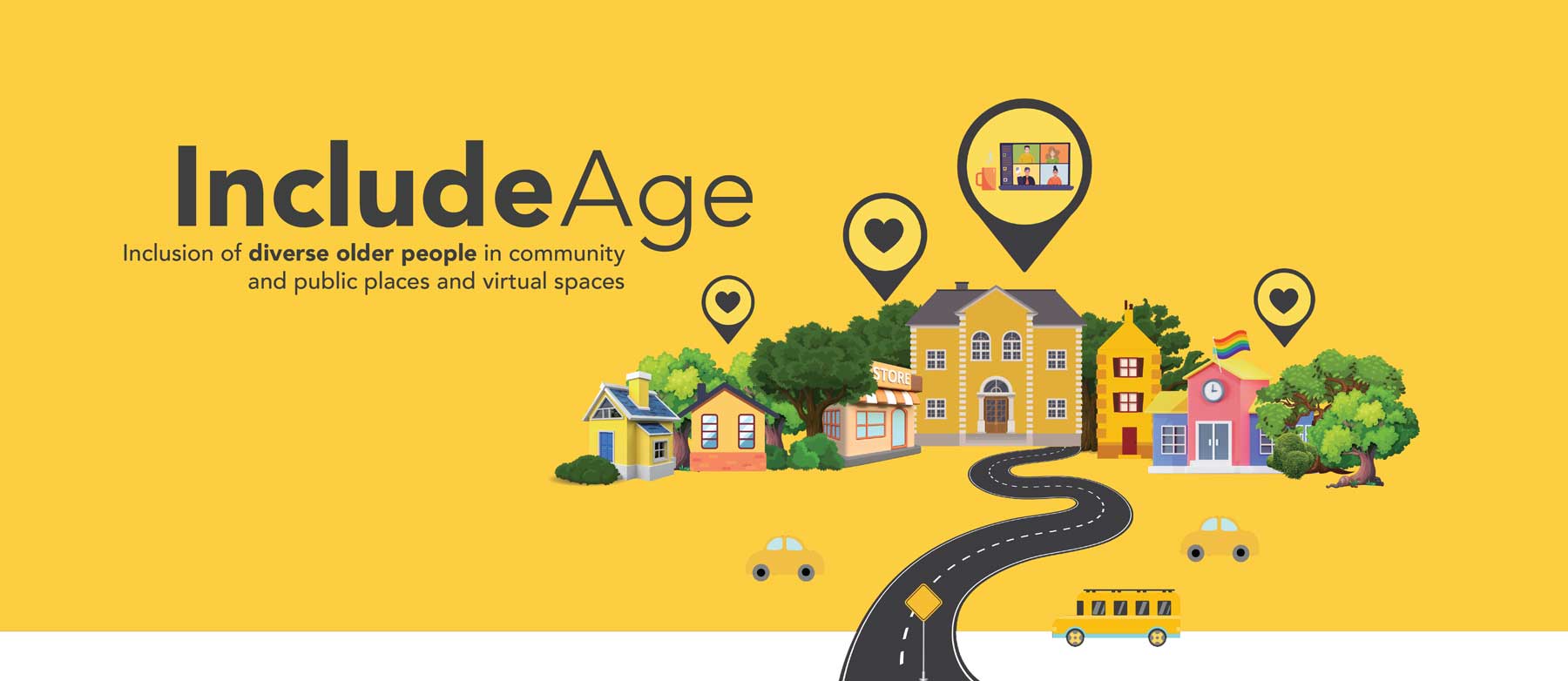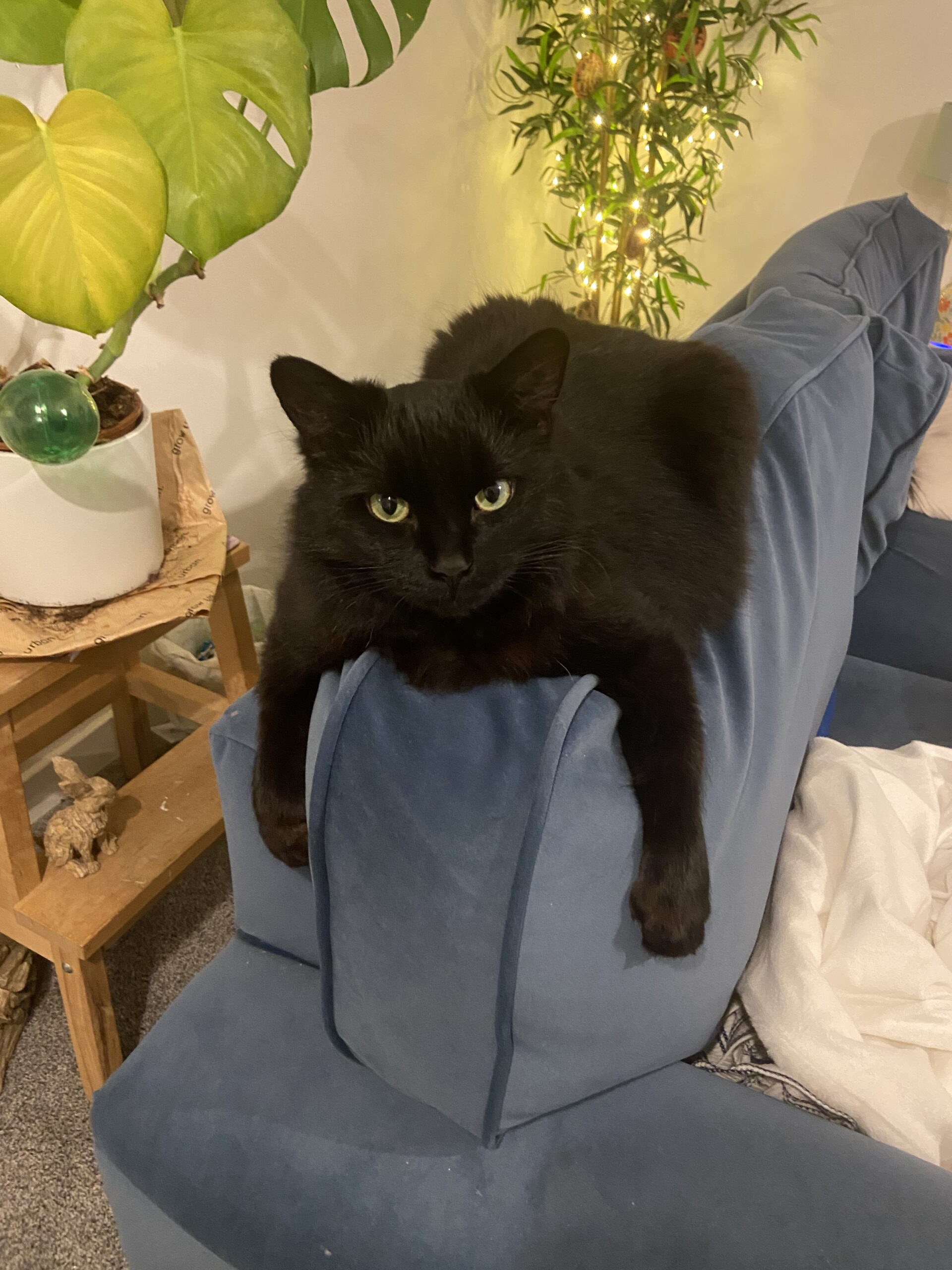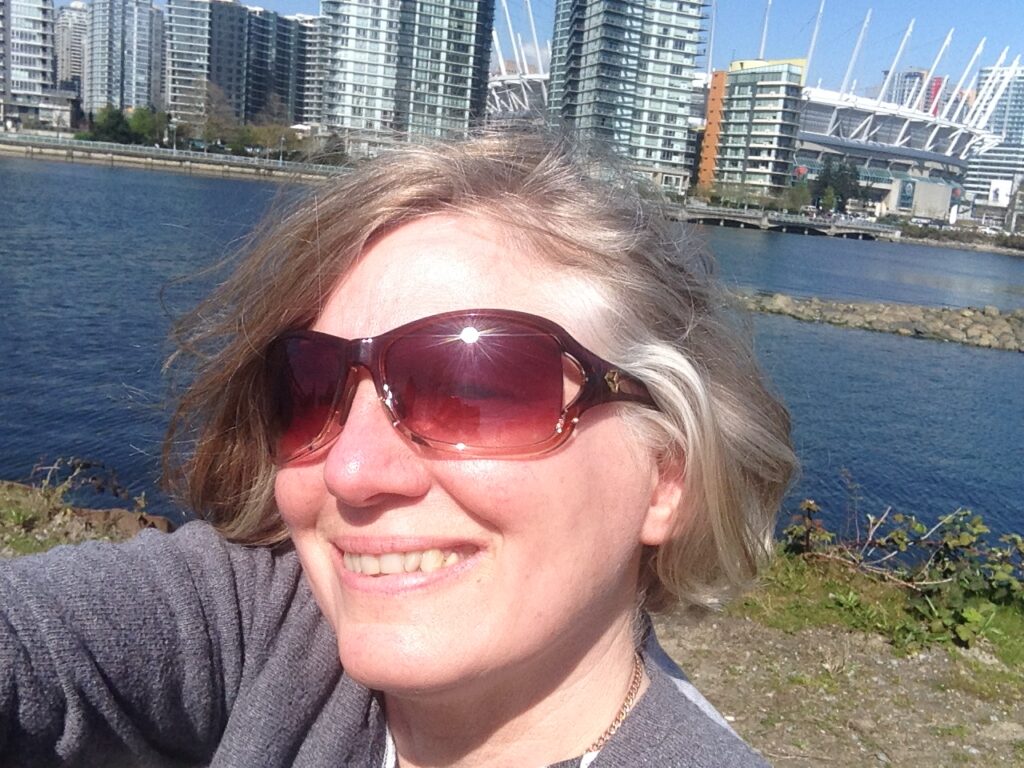This (IncludeAge) research has an opportunity to shine a light on this important groups (people with Learning Disabilities) experience of growing older, and the sort of support they need to grow older successfully. This project can raise awareness of the range of different experiences that people with Learning Disabilities – wherever they are being supported – to enable them to take full advantage of what their local communities have to offer. I am hoping that the project will raise aspirations about how older people with learning disabilities can not only be present and participate in their communities but be offered the opportunity to contribute.

Read the IncludeAge project’s statement on the recent Supreme Court ruling on the Equality Act 2010 dated 16 April 2025, HERE.
The IncludeAge Project.
To find out more about the project, watch our short introductory video:
By working with mid to older aged (40+) people with Learning Disabilities and/or who identify as LGBT+ through advisory groups, sectoral partners, participants, co-researchers, community organisations and academics we have begun to:
Co-create understandings of inclusion and exclusion in everyday physical and online places and spaces
Translate findings into potential solutions through co-design
Engage in academic, sectoral and policy knowledge translation
To generate information we have:
Completed 154 Life Course Interviews
Created 29 Social Network Maps
Done 67 Organisational Interviews with community, age-related, LGBT+ and Learning Disabilities Organisations
Held 4 Deliberative Dialogue sessions, 5 Listening for Directions Workshops, 1 Research into Action Workshop, 22 Co-Analysis Sessions and 2 Public Exhibitions

Project Launch
The IncludeAge project launched at the University of Dundee in Scotland on October 25, 2022. The team met to discuss first steps and to develop partnership working practices. Please see launch event slides HERE.

Setting up the Project
- Community Advisory Groups Form: One with People with Learning Disabilities and One with People who are LGBT+.
- Final Ethical Approvals Obtained
- Recruitment and Training for Community Researchers
- Large Scale Recruitment of Mid-Older Age People who have Learning Disabilities and/or are LGBT+
- Life Course Interviews with Mid-Older Age People with Learning Disabilities and/or People who are LGBT+ Begin
- The Place Study with Both Participant Groups Using Electronic Surveys Begins

Moving Forward
- Life Course Interviews and the Place Study Continue.
- Social Network Mapping with Mid-Older Aged People who have Learning Disabilities and/or are LGBT+
- Organisational Interviews Begin
- Early Data Analysis

Making Sense and Sharing Knowledge
- Continued Data Generation
- Continued Data Analysis
- Working with Co-Investigators, Co-Researchers, Community Advisory Group Members and International Reference Group to Discuss Early Findings
- Synthesis of Data and Dissemination of Findings
- Creation of Creative Materials and Workshops for Policy Makers, the Public and Organisations

Project Completion and Next Steps
- Co-creation Workshops
- Knowledge Cafes
- Creation of a Serious Game
- A Showcase Event
- Final Reports
- Community Exhibitions
- End of Project
Easy Read.

We have an IncludeAge website in Easy Read, where key details about IncludeAge are provided in an accessible information format. To view the IncludeAge website in Easy Read click HERE, or click the yellow button that appears on the left-hand side of this page and each section of the website as you scroll down.
Easy Read information is an accessible information format designed with and for people with Learning Disabilities.
Key facts about our project…
Workpackages
Academic & Non-Academic Investigators
Community Researchers who are people with Learning Disabilities and/or LGBT+
Community Advisory Group Members
International Reference Group Members
Interviews, Surveys and Maps Submitted
Participants so far
Project Resources over course of project
Latest Blogs.
Our Activities.
The IncludeAge project has 5 parts called Work Packages (WPs). Each work package is co-led by team members and has aims and objectives, a timeframe, tasks, outcomes, outputs and impact. To keep track of the possible impacts of what we find, we developed a Theory of Change, view it HERE.
Testimonials.

As a co-researcher on the IncludeAge project, I’ve been impressed by the project’s commitment to understanding the experiences of older people, particularly those in the LGBT+ and Learning Disability communities. The participatory approach, including life story interviews and social network analysis, is both innovative and inclusive. I believe that the findings from this project have the potential to drive positive change and inform policies that promote inclusion for diverse older individuals. It’s been a privilege to be part of this transformative work.

Hello! I have long career as a social worker within statutory social care and am transferring my skills to academic research. The IncludeAge project is focussing on places and spaces which may be occupied by the LGBTQ community and those with Learning Disabilities whose life stories and experiences are often unheard. As an older Lesbian in a long term relationship, my wife and I have experienced covert and overt homophobia, prejudice and heterosexism throughout our personal and professional lives – acceptance from most, hostility from others. We want to feel safe wherever we go.

Why it is important to make changes for older people learning disabled people as many years ago missed out getting the right support ie like my mum and dad and loads more as things wasn’t heard of. If things was put in place loads wouldn’t missed out or died suddenly. Now you got better support now for older people like support workers train nurses in learning disabled clubs to go to better support now in the system. Why I got involved I would love to see older people getting better care and make changes too older generation and the younger generation.








